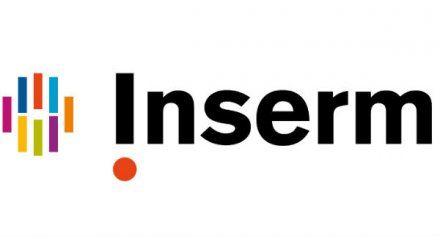预约演示
更新于:2025-05-07
Muscular Dystrophy, Congenital, Lmna-Related
先天性肌营养不良症,Lmna相关
更新于:2025-05-07
基本信息
别名 Congenital muscular dystrophy due to LMNA (lamin A/C) mutation、Congenital muscular dystrophy due to LMNA mutation、Congenital muscular dystrophy due to lamin A/C mutation + [10] |
简介 An autosomal recessive muscular dystrophy caused by mutation(s) in the LMNA gene, encoding prelamin-A/C. Limb-girdle muscular dystrophy type 1B and Emery-Dreifuss muscular dystrophy-2 are allelic disorders with overlapping phenotypes. |
关联
1
项与 先天性肌营养不良症,Lmna相关 相关的药物靶点 |
作用机制 p38 MAPK抑制剂 |
在研机构- |
在研适应症- |
最高研发阶段终止 |
首次获批国家/地区- |
首次获批日期1800-01-20 |
9
项与 先天性肌营养不良症,Lmna相关 相关的临床试验NCT06503367
Establishing Clinical Trial Readiness in Patients Age 0-5 Years with LAMA2-related Congenital Muscular Dystrophy (READY CMD LAMA2)
The goal of this observational study is to understand how young children with LAMA2-related dystrophy move and change over time. We will also learn about how this condition impacts other body systems.
Participants will undergo:
* Neuromuscular assessments
* Blood collections
* Swallowing and breathing assessments
* Questionnaires
Participants will undergo:
* Neuromuscular assessments
* Blood collections
* Swallowing and breathing assessments
* Questionnaires
开始日期2025-03-01 |
申办/合作机构 |
NCT05394506
Identification of Genetic Modifying Factors in Striated Muscle Laminopathies
Mutations in the LMNA gene, which codes for lamins A and C, proteins of the nuclear lamina, are responsible for a wide spectrum of pathologies, including a group specifically affecting striated skeletal and cardiac muscles, with cardiac involvement being life-threatening. At the skeletal muscle level, a wide phenotypic spectrum has been described, ranging from severe forms of congenital muscular dystrophy to less severe forms of limb-girdle muscular dystrophy. The great clinical variability of striated muscle laminopathies, both inter- and intra-familial, can be observed in the age of onset, severity of signs and progression of muscle and heart involvement. To date, more than 400 LMNA mutations have been associated with striated muscle laminopathies (www.umd.be/LMNA/), highlighting strong clinical and genetic heterogeneity. A few recurrent mutations linked to a difference in severity have been identified. However, these genotype-phenotype relationships and the rare cases of digenism reported do not explain all the clinical variability of laminopathies. Therefore, there are probably other factors of severity than the causative mutation, called "modifier genes".
Identification of such modifier genes has been initiated by studying a large family with significant clinical variability in the age of onset of muscle signs. A segregation analysis within this family identified 2 potential modifier loci. High-throughput sequencing restricted to these 2 regions according to phenotypic subgroups did not led to meaningful results so far. In addition, an international retrospective study of the natural history of early muscle laminopathies has allowed the investigators to highlight a strong inter-family clinical variability in patients carrying recurrent mutations. The investigators thus have strong preliminary data that could allow them to identify modifying genetic factors in a cohort of patients carrying a mutation in the LMNA gene.
In order to identify these factors that modulate the clinical severity of laminopathies, the investigators wish to collect biological material (muscle and/or skin biopsies) from patients carrying a mutation in the LMNA gene. The study of this biological material using multi OMICs technics will allow the investigators to identify and functionally validate the action of these modifying genes.
OMIICs is a set of techniques for characterising biological molecules using high-throughput approaches such as DNA sequencing, RNA sequencing and/or chromatin conformation (ATACseq...), proteins.
Identification of such modifier genes has been initiated by studying a large family with significant clinical variability in the age of onset of muscle signs. A segregation analysis within this family identified 2 potential modifier loci. High-throughput sequencing restricted to these 2 regions according to phenotypic subgroups did not led to meaningful results so far. In addition, an international retrospective study of the natural history of early muscle laminopathies has allowed the investigators to highlight a strong inter-family clinical variability in patients carrying recurrent mutations. The investigators thus have strong preliminary data that could allow them to identify modifying genetic factors in a cohort of patients carrying a mutation in the LMNA gene.
In order to identify these factors that modulate the clinical severity of laminopathies, the investigators wish to collect biological material (muscle and/or skin biopsies) from patients carrying a mutation in the LMNA gene. The study of this biological material using multi OMICs technics will allow the investigators to identify and functionally validate the action of these modifying genes.
OMIICs is a set of techniques for characterising biological molecules using high-throughput approaches such as DNA sequencing, RNA sequencing and/or chromatin conformation (ATACseq...), proteins.
开始日期2022-09-08 |
NCT04904393
Subanalysis in Patients With CARDIoLAMinopathy Enrolled to Retrospective and Observational Registy on Cardiac Contractility Modulation Therapy
Observational, retrospective registry with acute and chronic endpoints
开始日期2021-03-08 |
申办/合作机构- |
100 项与 先天性肌营养不良症,Lmna相关 相关的临床结果
登录后查看更多信息
100 项与 先天性肌营养不良症,Lmna相关 相关的转化医学
登录后查看更多信息
0 项与 先天性肌营养不良症,Lmna相关 相关的专利(医药)
登录后查看更多信息
192
项与 先天性肌营养不良症,Lmna相关 相关的文献(医药)2025-02-25·Circulation Journal
Prognostic Value of Endogenous-Type Coronary Microvascular Dysfunction After Elective Percutaneous Coronary Intervention
Article
作者: Nogami, Kai ; Ueno, Hiroki ; Setoguchi, Mirei ; Nagamine, Tatsuhiro ; Kakuta, Tsunekazu ; Usui, Eisuke ; Hada, Masahiro ; Sayama, Kodai ; Tahara, Tomohiro ; Kanaji, Yoshihisa ; Mineo, Takashi
2025-02-01·Journal of Cardiovascular Medicine
Functional assessment in angina and non-obstructive coronary arteries: from microvascular resistance reserve to subtypes of coronary microvascular dysfunction
Article
作者: Giuliana, Chiara ; Galante, Domenico ; Romagnoli, Enrico ; Crea, Filippo ; Viceré, Andrea ; Burzotta, Francesco ; Todisco, Simona ; Capalbo, Gennaro ; Viccaro, Vincenzo ; Leone, Antonio Maria ; Aurigemma, Cristina ; Montone, Rocco ; Trani, Carlo ; Pollio Benvenuto, Ciro
2025-02-01·Journal of Pediatric Surgery
Predictive Value of Esophageal Deviation Index for Clinical Outcomes of Patients With Left-Sided Congenital Diaphragmatic Hernia
Article
作者: He, Qiu-Ming ; Xia, Bo ; Fang, Wen-Hai ; Zhong, Wei ; Lv, Jun-Jian ; Luo, Wen-Jie
3
项与 先天性肌营养不良症,Lmna相关 相关的新闻(医药)2025-02-06
·精准药物
DOI: 10.1021/acs.jmedchem.4c02661
自2010年以来,共价修饰疾病驱动的蛋白作为一种治疗策略重新焕发,再次复苏。然而,FDA最早批准的共价药物可以追溯到20世纪40年代,不过,当时可能并不清晰其中的共价作用机制。
近日(Feb. 3),默沙东在J Med Chem上发文,从适应症、生物靶点、药物反应基团、生物反应伴侣(即氨基酸残基、辅因子等)、化学反应机制、生物活化要求、关键参照、可逆属性等多个维度,纵观FDA批准的所有小分子药物共价作用机制数据。
这是首次FDA批准小分子药物通过共价作用机制的完整数据,包括那些批准后才发现是共价机制的分子;并且集中在药化和药物设计相关的关键问题上;可能为共价药物设计与发现提供宝贵的指南。
01
小分子共价药物
近些年,由“靶向共价抑制剂”(TCIs),如杀伐替尼、依鲁替尼、多西替尼等的巨大成功,再次推动了共价药物的复苏。
除了通过靶向共价相互作用驱动药效、和选择性之外,通过研究人员的不懈努力与探索,解锁了共价更多的新功能、新应用:
1、引用半胱氨酸靶向筛选技术解锁了“不可成药”靶标空间的潜力;
2、超越半胱氨酸以外靶向化学物质,扩展了合适的蛋白质组靶标;
3、将非功能性共价手柄衍生为邻近化学诱导剂,以调节翻译后修饰,开拓了共价药物的新的治疗方向;
4、利用共价结合分子寻找化学起点和试剂,用于体外和原位新靶点的检测开发,这可以使探索非共价化学物质的计划成为可能,也是一个有前途的研究途径,以及通过共价结合和释放机制的细胞毒性有效载荷递送的新兴领域;
5、共价结合分子也提供了扩展药效学(PD)效应的潜力,超出了药物的药代动力学(PK)属性,潜在地减轻了药物的身体负担。
关于共价药物,Merck发现化学社区曾提出以下问题:
为了解决以上问题,默沙东汇总了一份截至到2023年底的FDA批准的小分子药物,它们与其生物靶点共价结合。
02
共价药物盛行:涉及治疗领域
研究人员共确定了128种具有共价作用机制(MoA)活性的小分子药物,约占FDA批准的所有小分子药物的7%。
所有共价药物涉及的治疗领域分布如下图A所示:其中,抗生素占54%,其次是肿瘤领域占18%,心脏代谢疾病(CMD)占12%,神经病学占9%,其它疾病如非细菌感染性疾病、免疫及其它总共占8%。
如上图B,从时间的角度来看,在1970年至1989年间,抗生素批准占主导地位,进入21世纪初下降。
显而易见,2010年以来,又一个共价药物的浪潮袭来。
而且,自2010年来,治疗领域的多样性明显增加,这与对如何设计安全共价药物的理解增加息息相关。
03
已获批共价药物的反应化学
已获批的共价药物涉及多种化学反应,为了简化分析,作者这里将其分为四类:
第一类:加成消除。以羰基型化学为特征,调用生物亲核试剂(氨基酸残基)攻击亲电小分子,并释放离去基团。
第二类:亲核取代。以SN1和SN2型反应为特征。
第三类:亲核加成反应。以Michael受体样加成反应和羰基加成反应为特征,不释放离去基团。
第四类:其它类。包括生物亲电试剂与小分子亲核试剂的反应、氧化反应、以及无法在文献中确定机制的项目。
此外,作者还包括了需要生物活化后(代谢后)才表现出活性的化合物(如奥美拉唑)。
如下图,显示了以上分类的反应机制分布:大多数共价药物(58%)通过加成消除机制起作用,以β-内酰胺类抗生素与丝氨酸残基反应为主。
如上图,显示了以上分类的反应机制分布:大多数共价药物(58%)通过加成消除机制起作用,以β-内酰胺类抗生素与丝氨酸残基反应为主(如下图)。
此外,有相当一部分(28%)是通过亲核加成机制起作用。
有一部分(9%)通过亲核取代机制作用起作用。
比较有意思的是,在其它类反应机制中,有一部分少数药物,它们是作为“亲核试剂”,与生物亲电试剂发生反应,这些通常是辅因子,作用机制如下图:
这些分子逆转了传统共价药物的典型亲核-亲电关系,并可能为进一步研究亲核分子提供机会,这些亲核分子可以靶向生物亲电试剂,如亲电翻译后修饰,以进入目前无法药物的靶标空间。
从时间的角度上来看,如下图,2010年后亲核加成机制的增加,这反映了TCIs中Michael受体亲电试剂的复苏。
从生物学靶标的角度来看,如下图,大多数共价药物与丝氨酸(Ser)、半胱氨酸(Cys)亲核试剂发生反应。
从反应机理到特异性化学,在这个角度上来看,如下图,已经获批的共价药物使用的活性官能团是相当不同、多彩多样。继抗生素的β-内酰胺支架之后,丙烯酰胺是数据集中最常用的反应性官能团。这反映了近年来,丙烯酰胺反应性的可调性、生物相容性和结构多样性潜力在持续增长。
在上图中,共有24类共价药物的独特反应性官能团,其中仅少部分需要生物活化;在2010年之前获批的12种需要生物活化的药物中,有一半是苯并咪唑亚砜;而这种生物活化是由质子化事件触发的(机理见下图奥美拉唑的机制图),并成功用于开发多种FDA批准的质子泵抑制剂。
然而,在2010年后,没有共价药物需要生物活化。这可能反映了在追求这种通用的策略时,与反应性代谢物相关的非特异性反应性非常具有挑战。
04
可逆与不可逆,谁更盛行?
接下来,作者想要了解可逆共价结合剂在整个数据集中的分布,然而,怎样定义可逆共价结合剂带来了几个挑战。
首先,体内可逆与不可逆结合剂的定义与生物靶标(结合与脱离靶标)的半衰期有关,这需要对系统有深入的动力学理解。这种分析很少有文献报道,特别是对于历史上的共价药物,它们的共价作用机制是最近几年才被发现的。
此外,除了依赖于体外试验的持续时间外,共价药物-蛋白质加合物可能被强烈的还原剂、或酶的变性所取代;这可能表明化合物是可逆的,然而却通常与治疗设置无关。
再者,从靶标的角度来看,被靶标转化为低底物的化合物也可以被认为是可逆的;然而,它们不会产生未反应的药物,无法继续与另一个靶标共价结合,因此,从药物的角度来看,可能不会被认为是可逆的。
思虑再三,作者认为围绕这一问题,往往转向药物化学家直观上期望的,在生物学相关的时间尺度上,活性官能团可逆,即配体解离比所讨论的蛋白质周转率快,在生理条件下(pH 7.4, 37℃,没有强淬灭剂和变性试剂),释放亲代药物,类似于非共价配体。
从机制的角度上来看,表现出这种直观可逆行为的活性官能团,可能会形成不稳定的共价加合物,或者拥有能够在共价结合状态下酸性质子促使的β消除。
因此,通过分类标记后,这些药物的可逆、不可逆、以及尚不清晰的标记分类如下图:其中,10%(13个)化合物被标记为可逆共价,86%的药物为不可逆共价,4%的药物尚不清楚。
在13种可逆共价化合物中,其生物靶点上的反应位点仅涉及四种:丝氨酸、半胱氨酸、末端胺、苏氨酸;参与这些反应的药物的官能团,没有一个需要生物活化,如下图。
这些反应官能团主要是按照亲核加成机制,如酮酰胺、腈、硼酸。
比较有趣的是,有两种具有加成-再消除机制的药物能够再生活性药物释放:瑞乐巴坦和阿维巴坦,如下图。
这些化合物通过其脲共价弹头的开环反应共价修饰β-内酰胺酶的活性蛋白残基。这个反应的离去基团是活化的氧胺磺酸,然而,它被附着在母体分子上。这防止了离去基团的损失,并促进了母体抑制剂和活性蛋白的再循环,从而产生了不良反应。
这种将离去基团与母体分子捆绑在一起的方法,可能代表了一种未经充分研究的设计策略,可以用于先前FDA批准的药物的可逆共价结合物。
在针对多种氨基酸残基的亲电试剂发展中,扩大了可药物靶标空间;但许多亲电试剂需要失去离去基团(如硫VI中心,氨基甲酸酯、酯、和SNAr底物等),在进一步的临床应用中,需要考虑安全性,并可能限制这些弹头不可逆的结合属性。
可逆性共价药物尽管样本量少,但也是横跨多个治疗领域,如下图,这可能也反映了这类药物的安全性。
当从时间的角度来分析,如下图,自2000年初以及2010年以来,可逆性共价小分子的获批数量有所增加。事实上,自2010年以来,有11个(83%)可逆共价药物获得批准,这可能反映并支持可逆共价药物的增长趋势。
05
总结与展望
自2010年第一批靶向共价抑制剂(TCIs)获批以来,共价药物获批数量显著增加,在治疗领域的多样性也有所增加。以这个时间点前后对比,共价药物设计的反应机制和化学成分有很大不同,对活性分子的生物活化需求在2010年以前更为普遍,反映了对最小化活性代谢物有意产生的认识和关注的增加,以及对基于靶标而不是表型的药物发现的增加,其中需要对分子作用机制有更深入的见解。
自2010年以来,以Michael受体在TCIs中的使用增加,亲核加成机制更为盛行。少数分子在与酶辅因子的反应中,激活亲核试剂,与传统共价药物典型相反。同时,本文通过数据分析,推测:可逆共价可能在共价药物发展中的趋势变强,这与当前药物研发更耐受性的安全性相关。
本文中通过分析历史中(至2023年底)获批的共价药物涉及到的化学反应、生物靶标、治疗领域,可能给药物研发者更大的信心以及消除对共价方法的一些担忧,特别是在肿瘤治疗领域以外。历史中采用的策略对未来的研究。
声明:发表/转载本文仅仅是出于传播信息的需要,并不意味着代表本公众号观点或证实其内容的真实性。据此内容作出的任何判断,后果自负。若有侵权,告知必删!
长按关注本公众号
粉丝群/投稿/授权/广告等
请联系公众号助手
觉得本文好看,请点这里↓
临床研究诊断试剂上市批准医药出海
2024-04-14
·今日头条
本期话题:发酵食品,营养政策,心血管,糖尿病,脂肪肝,大肠癌,代盐,血糖指数,血糖负荷,胆固醇,植物肉,超加工食品,红肉,Seres Therapeutics,Anatara Lifesciences,威溶特医药,东诚药业,长乘医药
该篇日报由R·AI辅助创作生成,人工审核校对。
Cell子刊:发酵食品的健康益处(综述)
Cell Metabolism——[29]
① 本综述探讨了发酵食品中微生物及其代谢产物对人类健康和疾病的影响,以及与商业益生菌的联系和未来研究机会;② 发酵食品的微生物代谢物,对食品的保存、营养和风味有影响,并可能促进人体健康;③ 发酵食品中的有机酸和抗菌肽可抑制病原菌生长,提高食品安全性,而发酵过程可释放营养物质,增加抗氧化物质,提高某些营养素的生物利用度;④ 人类信号通路能够感知并响应许多已知的发酵食品代谢物,这些代谢物可激活肠道和免疫系统中的受体,影响免疫和代谢功能,并可调节食欲和胰岛素敏感性;⑤ 未来的研究需要进一步表征发酵食品中的微生物和代谢物,并开展人体研究,以确定发酵食品对健康的影响。
【原文信息】
Our extended microbiome: The human-relevant metabolites and biology of fermented foods
2024-04-02 , doi: 10.1016/j.cmet.2024.03.007
Cell子刊:制定国家营养政策战略,促进心脏代谢健康和健康公平(综述)
Cell Metabolism——[29]
① 全球范围内饮食远非理想,而营养不均衡是心脏代谢疾病(CMD)的主要可修改决定因素,由饮食引起的CMD也会造成巨大的经济损失;② 营养不均衡不仅仅是个人选择不当的问题,还受到影响农业、经济和社会文化环境的政策格局的影响;③ 本文提出了一套基于证据的全社会策略,包括公共卫生行动、政府食品援助计划、医疗保健系统改革、商业创新和营养研究,这些策略有望改善营养、饮食相关疾病和健康平等;④ 美国的全国性策略为其他国家提供了改善食品安全、营养和健康的参考。
【原文信息】
Developing a national nutrition policy strategy to advance cardiometabolic health and health equity
2024-04-02 , doi: 10.1016/j.cmet.2024.02.001
Lancet子刊:高血糖指数和高血糖负荷饮食增加2型糖尿病风险
The Lancet Diabetes and Endocrinology——[44.5]
① 本前瞻性队列研究(PURE研究)包含来自20个国家的12万余名成年参与者,在中位随访时间11.8年中,新发7326例(5.7%)2型糖尿病;② 在多变量调整分析中,血糖指数较高的饮食与糖尿病风险增高显著相关,血糖指数最高与最低五分位组比较,风险比为1.15;③ 高血糖负荷饮食同样与糖尿病发病风险增加有关,血糖负荷最高与最低五分位组比较,风险比为1.21;④ 体质指数(BMI)较高的个体,血糖指数与糖尿病风险的关联更为显著;⑤ 研究结果表明,低血糖指数和低血糖负荷的饮食可能有助于预防2型糖尿病的发展。
【原文信息】
Associations of the glycaemic index and the glycaemic load with risk of type 2 diabetes in 127 594 people from 20 countries (PURE): a prospective cohort study
2024-04-05 , doi: 10.1016/S2213-8587(24)00069-X
“代盐”对心血管疾病的长期影响
Annals of Internal Medicine——[39.2]
① 本系统评价与荟萃分析纳入16项随机对照试验,涉及的参与者多数来自中国(含台湾省),评估了长期使用替代盐对心血管结果的影响,其中8项报告了主要结果(死亡率和主要心血管事件);② 使用替代盐可能降低全因死亡风险12%和心血管死亡风险17%(证据确定性低);③ 替代盐可能略微降低主要心血管事件(证据确定性非常低),而对严重不良事件影响的证据非常不确定;④ 总体而言,盐替代可能会降低全因死亡率或心血管死亡率,但对于减少心血管事件和不增加严重不良事件的证据尚不确定,特别是对于西方人群。
【原文信息】
Long-Term Effect of Salt Substitution for Cardiovascular Outcomes : A Systematic Review and Meta-Analysis
2024-04-09 , doi: 10.7326/M23-2626
钟文泽团队:吃进去的胆固醇对糖尿病和心血管病有何影响?
Diabetes Care——[16.2]
① 上海交通大学钟文泽团队发表研究,探讨了摄入膳食胆固醇(DC)与糖尿病和心血管疾病(CVD)发病率之间的关联,以及遗传易感性对这一关联的影响;② 每日额外摄入300毫克DC与糖尿病和心血管疾病的发病风险增加相关,但在调整BMI后,这一关联消失;③ 遗传易感性并未改变胆固醇摄入与疾病发病率之间的关联;④ 在具有较高胆固醇吸收遗传易感性的人群中,DC-CVD关联似乎更强,但层间相关性估计在统计学上不显著;⑤ 调整BMI后,在整个样本以及在根据胆固醇吸收的遗传易感性和疾病分层的亚组中,DC摄入量与新发糖尿病和CVD无关,然而胆固醇吸收的遗传易感性是否会改变DC-CVD的关联还需要进一步研究。
【原文信息】
Associations of Dietary Cholesterol Consumption With Incident Diabetes and Cardiovascular Disease: The Role of Genetic Variability in Cholesterol Absorption and Disease Predisposition
2024-04-09 , doi: 10.2337/dc23-2336
遗传风险会加重饮食对脂肪肝的影响?
Journal of Hepatology——[25.7]
① 通过24小时回忆法测量膳食摄入和基因分型的英国生物库参与者,旨在确定遗传因素如何与饮食互作影响脂肪肝病(SLD);② 共纳入超2.1万名参与者,发现地中海饮食和高摄入水果/蔬菜/豆类及鱼类与较低的肝脏脂肪含量(LFC)相关,而高摄入红肉/加工肉和所有遗传预测因子则与较高LFC相关;③ 在基因-环境互作模型中,所有遗传预测因子与地中海饮食和水果/蔬菜/豆类摄入互作影响LFC,而多基因风险评分与鱼类摄入互作,TM6SF2基因型与红肉/加工肉摄入互作;④ LFC的饮食影响在PNPLA3-rs738409-GG与-CC个体中相差高达3.8倍,在脂肪肝PRS的最高与最低四分位之间相差1.4-3.0倍;⑤ 多基因风险评分与地中海饮食和水果/蔬菜/豆类摄入互作,影响肝炎症和纤维化的测量指标cT1,且大多数饮食和遗传预测因子与70岁前肝脏相关事件或死亡风险相关。
【原文信息】
Genetic risk accentuates dietary effects on hepatic steatosis, inflammation and fibrosis in a population-based cohort
2024-04-04 , doi: 10.1016/j.jhep.2024.03.045
山西医科大学:饮食和维生素的改变如何影响空气污染颗粒与高血压的关系?
Science of the Total Environment——[9.8]
① 山西医科大学王彤团队在中国人口密集地区开展12年的纵向队列研究,探索饮食和维生素对颗粒物(PM)引起高血压风险的调节作用;② 长期暴露于不同直径的颗粒物(PM1、PM2.5、PM10)与高血压发病风险正相关,其危险比分别为1.0200、1.0120和1.0074;③ 摄入健康食物和维生素能显著正向调节颗粒物暴露与高血压风险间的关系,尤其是水果和维生素E的摄入与较低的高血压风险相关;④ 相比于维生素B和C,维生素E的摄入对颗粒物暴露与高血压风险的调节作用更强;⑤ 本研究表明,适当的饮食和维生素摄入有助于减缓空气污染颗粒物对成年人高血压风险的增加。
【原文信息】
Effect modification of diet and vitamins on the association between air pollution particles of different diameters and hypertension: A 12-year longitudinal cohort study in densely populated areas of China
2024-04-06 , doi: 10.1016/j.scitotenv.2024.172222
植物蛋白肉对心血管代谢健康无益
American Journal of Clinical Nutrition——[7.1]
① 本研究比较了植物蛋白肉饮食(PBMD)和动物蛋白肉饮食(ABMD)对有糖尿病风险的成人心血管代谢健康的影响,结果发现PBMD并未带来广泛的心血管代谢健康益处;② 纳入89名参与者进行8周的膳食干预,发现PBMD组中膳食纤维、钠和钾摄入量增加,而ABMD组中反式脂肪酸摄入量增加;③ PBMD组舒张压(DBP)较低,尤其是夜间DBP显著降低,而ABMD组则相反;④ 两组的果糖胺和β细胞功能的稳态模型评估在第8周时都有所改善,但在血糖稳态方面,ABMD组的调节能力优于PBMD组;⑤ 两组参与者的人群依从性分别为87%和95%,未发现与饮食干预或研究相关的不良事件。
【原文信息】
Plant-based meat analogues (PBMAs) and their effects on cardiometabolic health: An 8-week randomized controlled trial comparing PBMAs with their corresponding animal-based foods
2024-04-08 , doi: 10.1016/j.ajcnut.2024.04.006
超加工食品与大肠癌患者死亡率间有何关联?
EClinicalMedicine——[15.1]
① 纳入2498名I-III期结直肠癌(CRC)患者(均龄68.5),通过食物频率问卷收集了诊断后6个月至4年内的超加工食品(UPFs)摄入数据;② 共记录到1661例死亡病例,其中包括321例CRC死亡和335例心血管疾病(CVD)死亡;③ 与摄入量最低的患者相比,摄入量最高的患者CVD特异性死亡风险增加65%;④ 高摄入脂肪/调味品/酱料的患者CVD特异性死亡风险增加近一倍,而高摄入冰淇淋/雪糕的患者CRC特异性死亡风险增加86%;⑤ 超加工食品亚组与总体死亡率之间没有统计学显著性关联。
【原文信息】
Ultra-processed food consumption and mortality among patients with stages I-III colorectal cancer: a prospective cohort study
2024-03-28 , doi: 10.1016/j.eclinm.2024.102572
红肉和加工肉吃的越少,大肠癌风险越低?可能只是研究偏差!
Advances in Nutrition——[9.3]
① 本研究揭示了传统剂量-反应荟萃分析(DRMA)方法在低摄入水平上可能导致风险估计偏差,以红肉和加工肉与结直肠癌关联为例;② 研究使用了全球疾病负担项目的系统评审数据,对低消费者(低于美国中位数)和全范围消费者的数据分别进行了DRMA模型拟合;③ 仅针对低消费者的分析未发现红肉和加工肉与结直肠癌的显著正相关性;④ 当考虑全摄入范围时,才显示出与结直肠癌的关联,并且呈现非线性、非单调的关系;⑤ 研究认为现有的观察性研究可能高估了低消费水平下的风险,红肉和加工肉的最低安全摄入量为零是不符合证据的。
【原文信息】
Observational dose response meta-analysis methods may bias risk estimates at low consumption levels: the case of meat and colorectal cancer
2024-03-21 , doi: 10.1016/j.advnut.2024.100214
SER-155治疗Allo HSCT 1b期临床第2队列研究完成患者招募
① 4月9日,Seres Therapeutics公司宣布,旗下活体生物药SER-155的一项1b期临床试验的第2个队列研究已完成患者招募;② 该队列研究旨在评估SER-155减少异基因造血干细胞移植(Allo HSCT)患者肠源性感染和血流感染的安全性和有效性问题;③ Seres Therapeutics公司预计在2024年三季度末发布关于该研究的安全性、药物药理学和有效性的初步数据;④ SER-155是一种配方菌活体生物药,已获得FDA快速通道资格认定,能够在Allo HSCT患者体内定植并且抑制肠内有害害菌,有望改善患者预后。
【原文信息】
SERES THERAPEUTICS ANNOUNCES COMPLETION OF PATIENT ENROLLMENT FOR SER-155 PHASE 1B COHORT 2 CLINICAL TRIAL IN ALLOGENIC HSCT
2024-04-09 , Seres Therapeutics
Anatara GaRP-IBS研究开启患者招募
① 4月9日,Anatara Lifesciences公司宣布,旗下在研管线GaRP的2期临床试验GaRP-IBS研究已通过伦理审查并开启患者招募;② 意向人群可在墨尔本、悉尼和布里斯班的5个临床中心参加该临床研究,研究预计招募100-140名患者;③ 在第一阶段试验61名患者中,有超过50%的患者报告其肠易激综合征(IBS)症状减轻;④ GaRP是Anatara Lifesciences公司针对炎症性肠病和IBS这两类肠道慢性疾病,专门开发的一种靶向肠道菌群多成分膳食补充剂。
【原文信息】
Anatara Lifesciences recruiting at all five sites for Stage 2 of its Pivotal Phase II Irritable Bowel Syndrome (IBS) Clinical Trial
2024-04-09 , Anatara Lifesciences
威溶特医药抗癌新药VRT106启动中国1期临床试验
① 4月10日,威溶特医药在中山大学附属肿瘤医院,启动注射用重组溶瘤病毒M1(VRT106)的1期临床试验;② 该临床试验由中山大学肿瘤防治中心主任徐瑞华教授和副主任赵洪云教授领衔;③ 研究旨在全面评估VRT106治疗包括肺癌、结直肠癌、胃癌、乳腺癌、肝癌等多种实体瘤的安全性、耐受性、体内分布特性、生物效应以及初步疗效;④ VRT106是基于甲病毒M1骨架的溶瘤病毒产品,可通过多种给药方式实施用药,具有明确的治疗相关生物标志物,配套的伴随诊断技术,以及方便使用、运输和贮存的冻干粉针剂型。
【原文信息】
威溶特医药原创溶瘤病毒M1抗癌新药VRT106中国I期临床试验在中山大学附属肿瘤医院正式启动
2024-04-11 , 威溶特医药
东诚药业68Ga-LNC1007注射液近期于新加坡开展1期临床试验
① 4月9日,东诚药业宣布,旗下蓝纳成新加坡子公司获得新加坡卫生科学局核准,将开展68Ga-LNC1007注射液1期临床试验;② 68Ga-LNC1007注射液是一种新型双靶点放射性体内诊断药物,同时靶向成纤维细胞活化蛋白(FAP)和整合素(αvβ3),用于成人实体瘤的诊断;③ FAP为II型跨膜丝氨酸蛋白酶,高表达于许多上皮肿瘤相关成纤维细胞中,包括胃癌、食管癌、肺癌、结直肠癌、卵巢癌等,而在正常组织、良性肿瘤间质中无表达或表达较低;④ 研究结果显示,68Ga-LNC1007注射液能够显著提高肿瘤摄取、提升肿瘤靶向效率并改善药代动力学,具有良好的安全性。
【原文信息】
68Ga-LNC1007注射液将于近期在新加坡开展I期临床试验
2024-04-11 , 东诚药业
抗肿瘤新药研发商「长乘医药」完成数千万元Pre-A轮融资
① 近日,长春长乘医药科技有限公司(简称“长乘医药”)宣布完成数千万元Pre-A轮融资;② 本轮融资由长兴基金领投,产业相关方跟投,资深临床研究科学家宋钦辉博士担任首席医学官(CMO);③ 长乘医药专注于前药技术平台GIBP technology的开发以及FIRST-IN-CLASS和BEST-IN-CLASS药品的研发与创新;④ 其广谱抗肿瘤新药POC101即将进入临床试验,适用于结肠癌、胃癌等多种癌症治疗;⑤ 此外,长乘医药还在积极部署创新的化学蛋白质组学平台,通过共价靶向组氨酸、酪氨酸或赖氨酸等可连接氨基酸,选择性地解除致病蛋白质的武装。
【原文信息】
长乘医药完成数千万元Pre-A轮融资,资深科学家宋钦辉博士加盟任CMO
2024-04-11 , 动脉网
感谢本期日报的审核者:注册营养师陈彬林,RZN,九卿臣,Richard,lxx
点击阅读过去10天的日报:
0413 | 3篇子刊重磅文章,解析微生物组治疗的现状与未来
0412 | 10文聚焦国内团队新成果,肠道和菌群研究多点开花
0411 | 今日Nature:抵御病菌感染,结肠细胞如何与T细胞协作?
0410 | 今日Cell:首个大规模泛癌转移瘤菌群图谱重磅出炉
0409 | 高分Nature子刊:菌群产物药物研发取得新进展
0408 | 300万人数据:"好"胆固醇与消化道癌症风险有何关联?
0407 | 100分综述详解:短链脂肪酸链起饮食、菌群和免疫
0406 | 贾伟/刘铁民/郑晓皎Cell子刊新发现:改善抑郁症的肠菌代谢物
0405 | 高分Cell子刊:中国农大团队详解后生元
0404 | 顶刊双发:肠菌相关神经发育和肠道免疫研究均有新发现
微生物疗法
2023-09-28
9月25日,诺和诺德发布声明称,与与美国科技公司Valo Health达成合作协议,寻求利用人类数据和人工智能发现并开发心脏代谢疾病(CMD)的新疗法。根据协议条款,Valo将获得预付款和潜在的近期里程碑付款,总额为6000万美元,并有资格获得最多11个项目的里程碑付款,总额可达27亿美元,外加研发费用资金和潜在的特许权使用费。最近一段时间,由于诺和诺德的新一代药物可以通过抑制食欲来帮助人们减掉多余的体重,该公司一跃成为了众人瞩目的焦点。对治疗肥胖和相关糖尿病的重磅药物Wegovy的需求已将诺和诺德的市值提升至约4170亿美元,超过了丹麦的国内生产总值,并使其成为欧洲最有价值的公司,领先于法国奢侈品巨头LVMH。诺和诺德正在寻找交易,以在肥胖、糖尿病和心脏病研究的早期阶段,通过新的潜在药物来加强其药物管线。诺和诺德的一款名为CagriSema的实验药物正处于临床试验的后期阶段,有可能帮助患者减轻多达25%的体重,相比Wegovy,这将是该公司的又一次“重大进步”。目前,AI制药空前火热,业内人士认为,利用AI技术,可以缩短新药研发周期、节省成本,显著提升药物研发效率和企业竞争力。人工智能技术正逐步从多方面渗透到生物制药领域,并有机会为行业带来重大变革。中国AI制药发展迎来良机,互联网巨头纷纷进军。目前,我国AI新药研发(AIDD)行业的竞争者类型主要分为三类,互联网巨头、传统药企和初创企业。腾讯、阿里、华为、阿里巴巴和百度等互联网巨头都在布局AI制药。国金证券在研报中指出AI技术已经渗透到药物研发多个环节,包括靶点发现、化合物合成和筛选、晶型预测、机制探索、选择受试人群、药物警戒等。目前,国内多家药企已经布局AI+新药研发相关领域。随着相关应用不断成熟和落地,预计将显著提升药物研发效率和企业竞争力。东吴证券认为AI新药研发的三要素是数据、算力和算法,软件提供商基于自身在算法方面的优势,有望通过提供软件产品实现商业模式的打通;平台型研发企业在数据积累上有较大优势,有望衍生出AI新药研发的CRO企业,为不具备AI新药前端开发能力的企业提供支持。参考来源:1.https://www.zhitongcaijing.com/content/detail/1000444.html2.https://t.qianzhan.com/caijing/detail/230927-4171b384.html本周好文推荐如需转载请联系佰傲谷并在醒目位置注明出处﹀ ········
引进/卖出
分析
对领域进行一次全面的分析。
登录
或

Eureka LS:
全新生物医药AI Agent 覆盖科研全链路,让突破性发现快人一步
立即开始免费试用!
智慧芽新药情报库是智慧芽专为生命科学人士构建的基于AI的创新药情报平台,助您全方位提升您的研发与决策效率。
立即开始数据试用!
智慧芽新药库数据也通过智慧芽数据服务平台,以API或者数据包形式对外开放,助您更加充分利用智慧芽新药情报信息。
生物序列数据库
生物药研发创新
免费使用
化学结构数据库
小分子化药研发创新
免费使用


